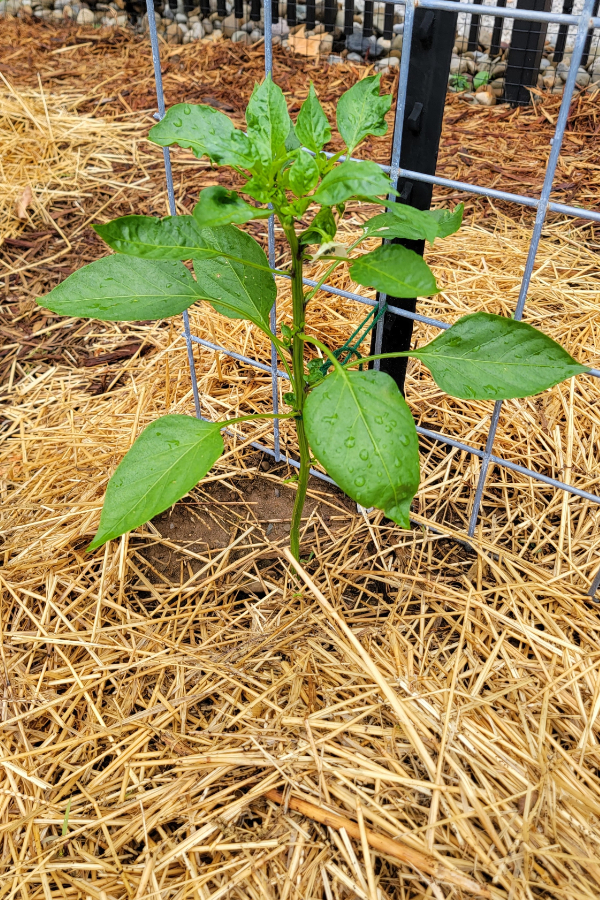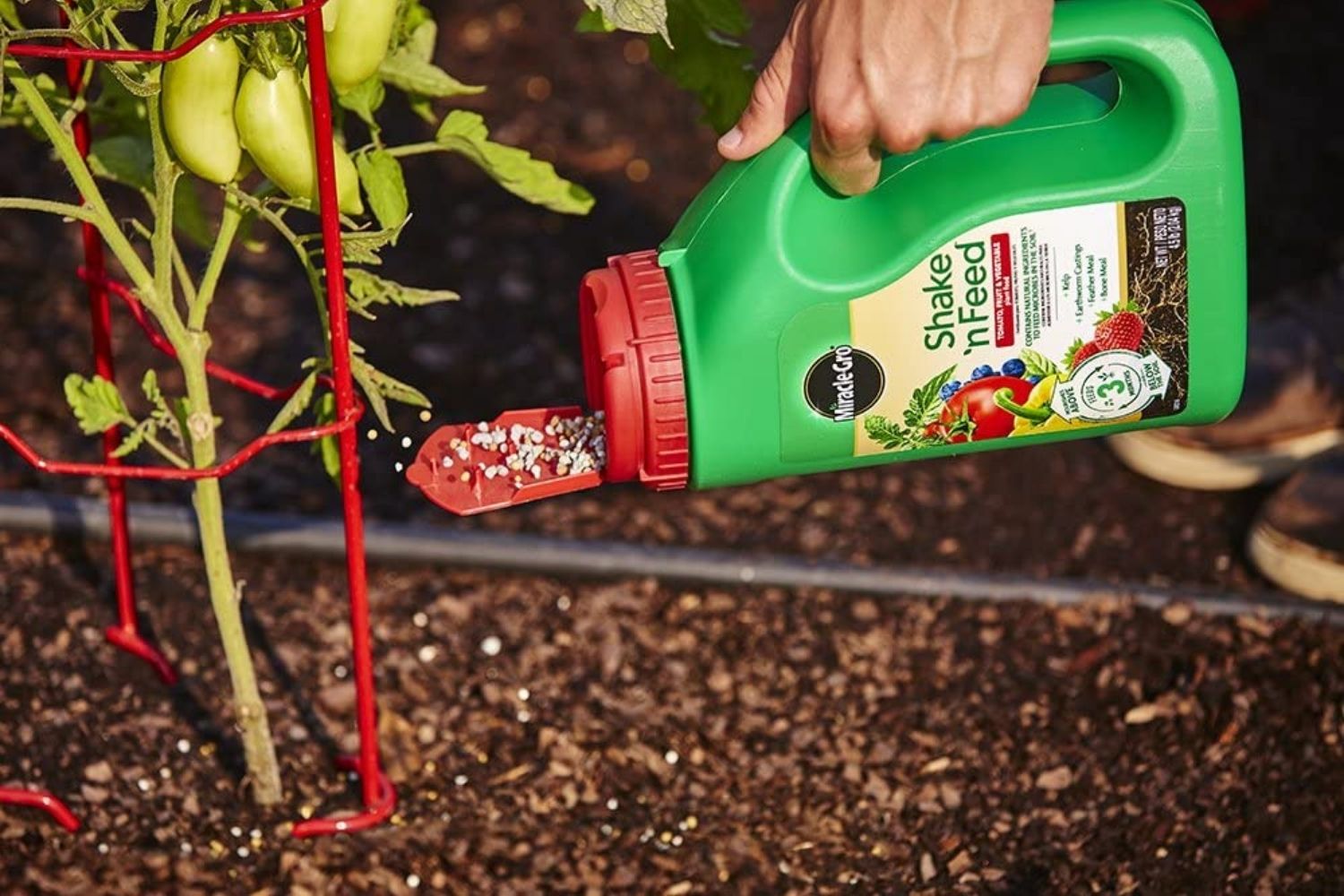Best Fertilizers for Peppers: Make The Most Of Plant Health and Yield
Best Fertilizers for Peppers: Make The Most Of Plant Health and Yield
Blog Article
Organic Vs. Synthetic Fertilizers: Which Is Best for Nurturing Healthy Pepper Plants?
In the realm of supporting healthy pepper plants, the selection in between artificial and organic fertilizers stands as an essential decision with far-ranging ramifications. While both choices purpose to offer vital nutrients to sustain plant development, the subtleties of their influence on the dirt, plant health, and the atmosphere trigger a dispute that mirrors throughout the horticulture community. Understanding the distinctive benefits and potential pitfalls of each plant food kind is crucial for pepper cultivators looking for to enhance their yields while preserving an eco-conscious and sustainable technique.
Benefits of Organic Plant Foods
Organic fertilizers offer a sustainable and environmentally-friendly technique to beneficial pepper plants, giving necessary nutrients without using synthetic chemicals. These all-natural plant foods are originated from natural sources such as compost, manure, bone meal, and algae, promoting soil health and biodiversity. Unlike synthetic plant foods, natural alternatives launch nutrients gradually, guaranteeing a constant and balanced supply for pepper plants to prosper.
One substantial benefit of natural plant foods is their capability to enhance dirt framework and water retention. By boosting soil wellness, organic fertilizers advertise beneficial microbial activity, which assists in nutrient uptake by pepper plants. Furthermore, natural plant foods reduce the risk of chemical run-off, securing water sources from pollution and safeguarding the setting.
Furthermore, natural fertilizers contribute to lasting dirt fertility by promoting the development of useful soil organisms. These organisms help damage down raw material, launching nutrients in a type that is quickly available to pepper plants. best fertilizers for peppers. By fostering a healthy and balanced soil environment, natural plant foods sustain sustainable pepper cultivation methods that benefit both plants and the atmosphere
Disadvantages of Artificial Plant Foods
Artificial fertilizers, in contrast to their natural counterparts, pose numerous downsides when used to nurture pepper plants, impacting both plant health and environmental sustainability. One significant drawback of artificial fertilizers is their propensity to leach nutrients from the dirt swiftly. This quick leaching can lead to nutrition inequalities in the soil, creating plants to deal with shortages or poisonings. In addition, artificial plant foods can damage beneficial soil microorganisms, such as earthworms and beneficial bacteria, interfering with the soil environment's balance.
Furthermore, the overuse of synthetic fertilizers can add to water pollution. Excess plant foods not taken in by plants can clean away right into water bodies, resulting in eutrophication, where algae blooms deplete oxygen levels in the water, harming aquatic life. Artificial fertilizers are typically acquired from non-renewable sources, such as fossil fuels, adding to carbon exhausts and ecological destruction throughout their manufacturing.
Nutrient Absorption Contrast
When contrasting natural and artificial plant foods in terms of nutrient absorption, organic fertilizers have the benefit of giving a much more well balanced and slow-release resource of nutrients. Organic fertilizers have a range of macro and trace elements that are not only advantageous for the plants yet also promote healthy and balanced official source dirt microbial activity, which aids in nutrient uptake.
Moreover, natural fertilizers improve dirt framework and water retention capacity, allowing pepper plants to access nutrients much more successfully. This better dirt top quality facilitates root development, enabling better nutrient absorption. Synthetic plant foods, although originally enhancing plant development because of their high nutrient concentrations, may impede long-term nutrient absorption by degrading dirt wellness with time.
Environmental Influence Factors To Consider

On the other hand, artificial plant foods, although commonly more immediately readily available and concentrated to plants, can have destructive impacts on the environment otherwise applied appropriately (best fertilizers for peppers). Their manufacturing requires high power inputs, resulting in greenhouse gas emissions and adding to environment modification. Moreover, the drainage of excess synthetic plant foods can contaminate water sources, leading to eutrophication and harming water communities.
Ideal Plant Food Practices for Peppers
When feeding pepper plants, optimizing nutrient uptake and reducing ecological influence are key considerations. To accomplish this, it is essential to follow finest plant food techniques customized to the particular requirements of pepper plants. One important method is to do a dirt examination prior to using any fertilizers. This test can determine the pH level of the dirt and recognize any nutrient deficiencies, guiding you visite site in selecting the most suitable fertilizer formulation.
One more crucial method is to fertilize pepper plants at the correct time. Generally, peppers take advantage of getting fertilizer at planting and after that once again when they start to flower. Over-fertilizing can lead to vitamins and mineral inequalities and hurt the plants, so it is important to follow advised application prices.
In addition, picking a balanced fertilizer with an NPK proportion that fits pepper plants' requirements is fundamental. Organic plant foods, such as compost or manure, can be excellent selections as they release nutrients slowly and boost soil structure over time. Nonetheless, artificial fertilizers can give a quick nutrient boost when required. Inevitably, integrating synthetic and natural plant foods judiciously can aid nurture healthy and balanced pepper plants while reducing environmental effect.
Conclusion

Organic plant foods supply a sustainable and environmentally-friendly strategy to nourishing pepper plants, supplying essential nutrients without the use of synthetic chemicals. Unlike artificial plant foods, organic choices launch nutrients gradually, ensuring a balanced and stable supply for pepper plants to grow.
Artificial read review fertilizers, in contrast to their organic equivalents, present numerous disadvantages when utilized to nourish pepper plants, affecting both plant wellness and ecological sustainability. When contrasting artificial and natural plant foods in terms of nutrient absorption, natural plant foods have the advantage of providing a more balanced and slow-release source of nutrients.Additionally, organic fertilizers improve dirt framework and water retention capability, enabling pepper plants to gain access to nutrients more efficiently.
Report this page